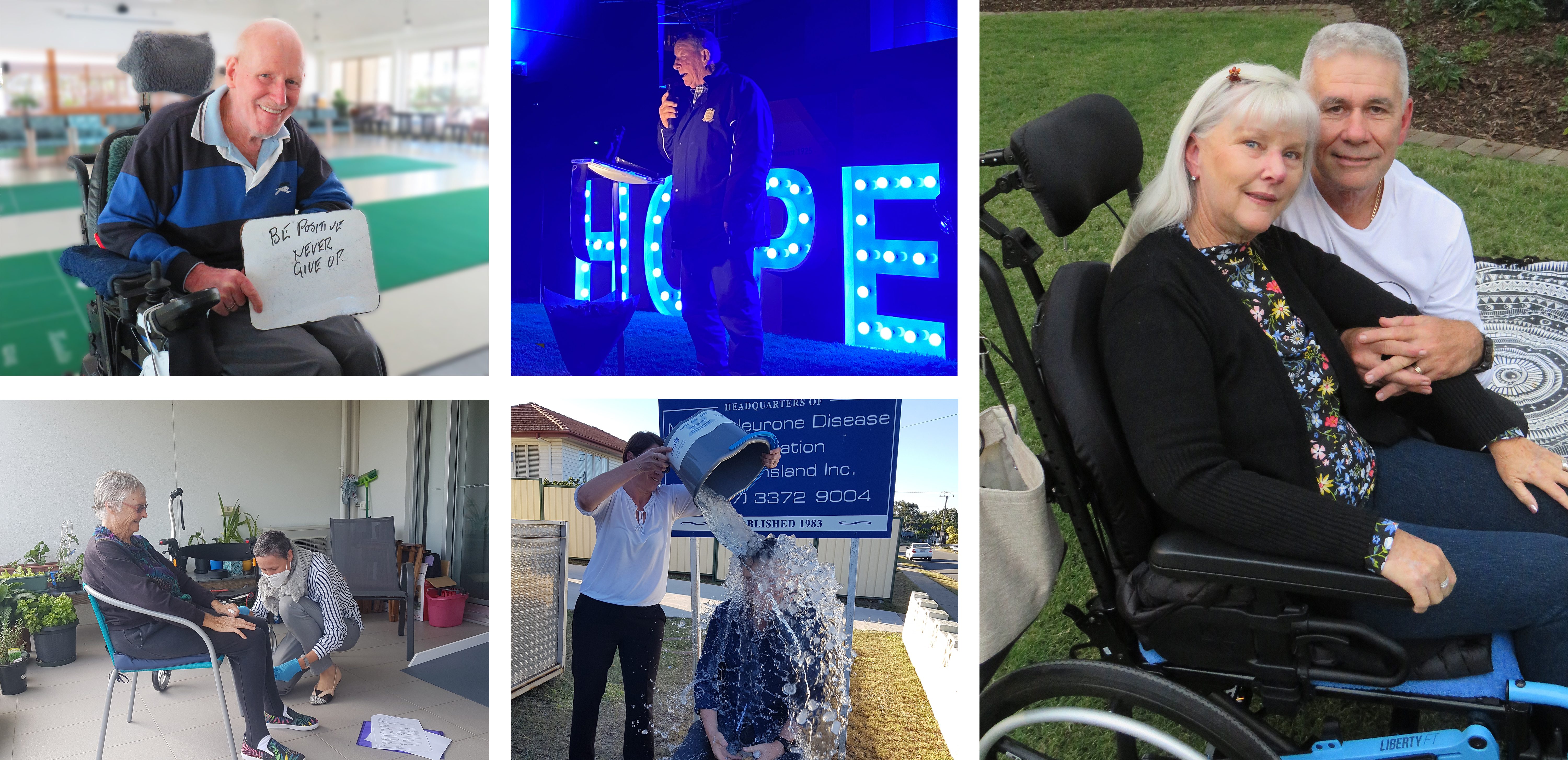
What is MND?
MND (or motor neurone disease) is a progressive disease that affects the nerves (motor neurones) that send messages between the brain and the muscles. In particular, this impacts the muscles that help you to move, speak, swallow and breathe.
You might have heard MND referred to as ALS (or Amyotrophic Lateral Sclerosis) in other parts of the world. MND and ALS are different names for the same disease. Both actually refer to a group of similar conditions that affect nerve cells.
If you are concerned that you or a loved one may be living with MND, please know that there is support available to you. You can access support services and social care that can help you with each stage of your MND journey.
MND is a life-limiting disease, with the majority of cases being of no known cause. However about 10% of cases are familial (inherited) and the genetic fault of about 60% of these cases is now known in Australian families. Current research is showing that many sporadic cases also have a genetic component.
Call our free helpline service 1800 777 175 or REQUEST A CALL BACK
GET MND SUPPORT
JUST DIAGNOSED
MND Explained Translation
Effects on the human body
Our motor neurones carry messages from the brain to the muscles via the spinal cord. These messages allow people to make voluntary and involuntary movements.
In people with MND, the motor neurones gradually degenerate and die, causing the muscles to weaken and waste. As this area degenerates, it leads to scarring or hardening of the nerves in the region, which then begin to progressively die off. As they die off, the brain loses the ability to control the muscle movement in that area.
Over time people diagnosed with MND may find they lose more and more muscle action. So while it might start with clumsiness and weakness, it will gradually impact people’s ability to do most activities, and may even include cognitive and behavioural changes.
Symptoms of MND
There are many symptoms that could be positively linked to MND, and which could also be something else entirely. These range from mild weakness to slurred speech. (See our full list of symptoms.)
The best way to find out if your symptoms are MND-related is to speak to your doctor who will begin the process of diagnosis. While there is currently no cure, there is specialist support and social care that can help you achieve the best quality of life throughout your illness. The sooner you are able to get a diagnosis, the more services you are able to take advantage of.
Causes of MND
MND is a life-limiting disease, and in the majority of cases there is no known cause. However about five to 10% of cases in Australia can be identified as familial or inherited. Researchers are still investigating the causes of other sporadic cases and the impact of genetics generally.
Risk and life expectancy
MND progresses differently for each person and your experience will be unique to you. The average life expectancy is around two-and-a-half years. However, a full five to 10% can survive 10 years or more.
The lifetime risk of developing MND is about one in 300 by the age of 85, with the risk increasing steadily as people get older. There are currently more men than women diagnosed with MND, and most commonly diagnosis occurs between the ages of 50 to 60 years. However, MND may be diagnosed in adults at any age.
There are over 2,100 Australians living with MND.
Treatments for MND
There is currently no known cure for MND. However, there is a wealth of new scientific understanding about MND, and dedicated researchers have made significant progress in understanding how the disease works, and how to best diagnose and treat the disease. There are more and more studies being undertaken in Australia and across the world to develop more treatments and look for a cure.
In Australia, there is currently one medication approved which has been shown to slow the progression of MND and increase life expectancy by as much as 19 months. Called Riluzole, it is the most effective drug available worldwide at this time.
Additionally, there is a wide range of support that can significantly increase your physical and mental health and help you achieve a greater quality of life at each stage of your journey. Taking advantage of this assistance is a vital part of managing the disease.
You’re not alone.
Whether you’re looking to understand symptoms, have just been diagnosed with MND or are a carer, loved one or health care worker, we’re here to help you with your MND journey.
Call our free helpline service 1800 777 175 or REQUEST A CALL BACK
GET MND SUPPORT
JUST DIAGNOSED